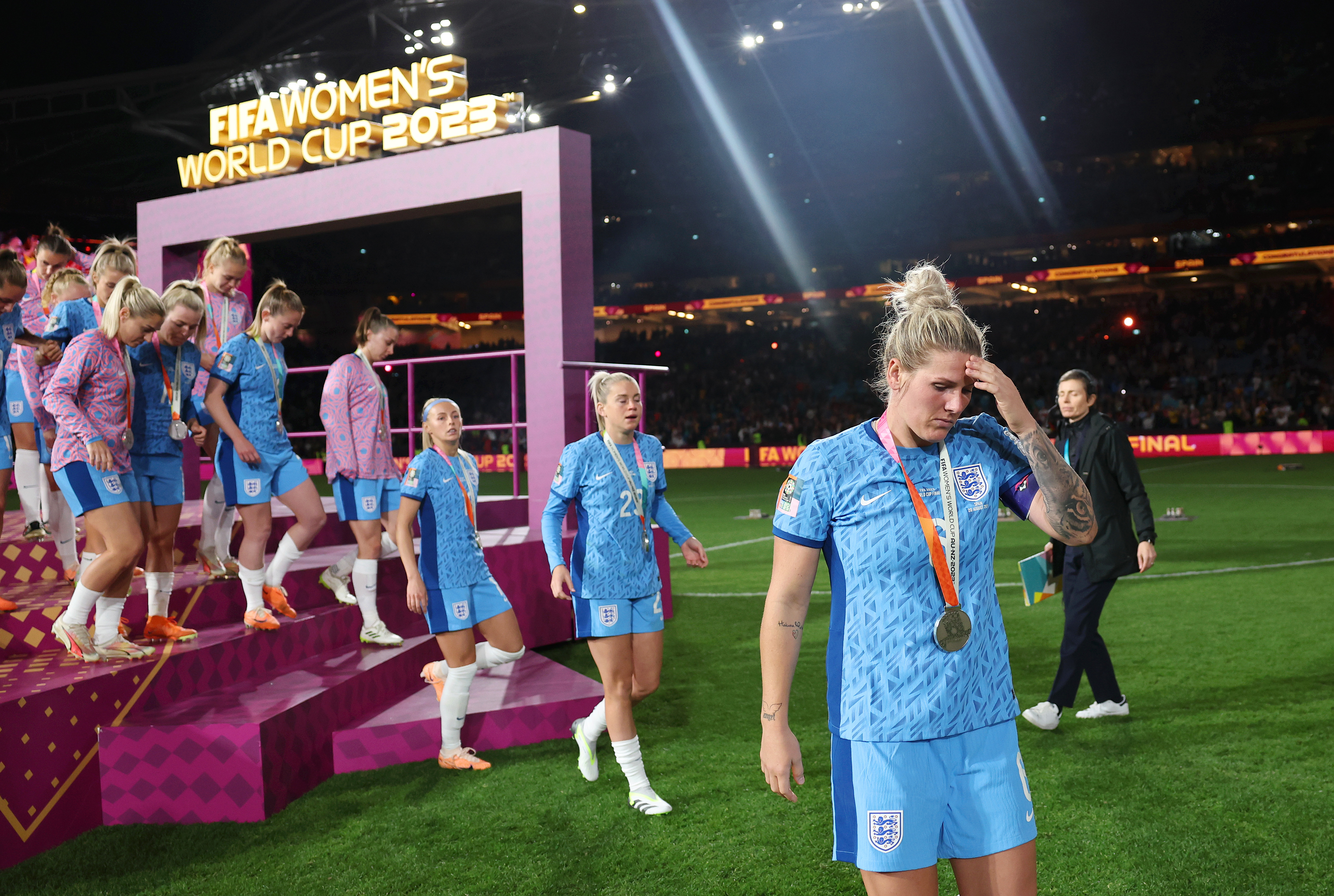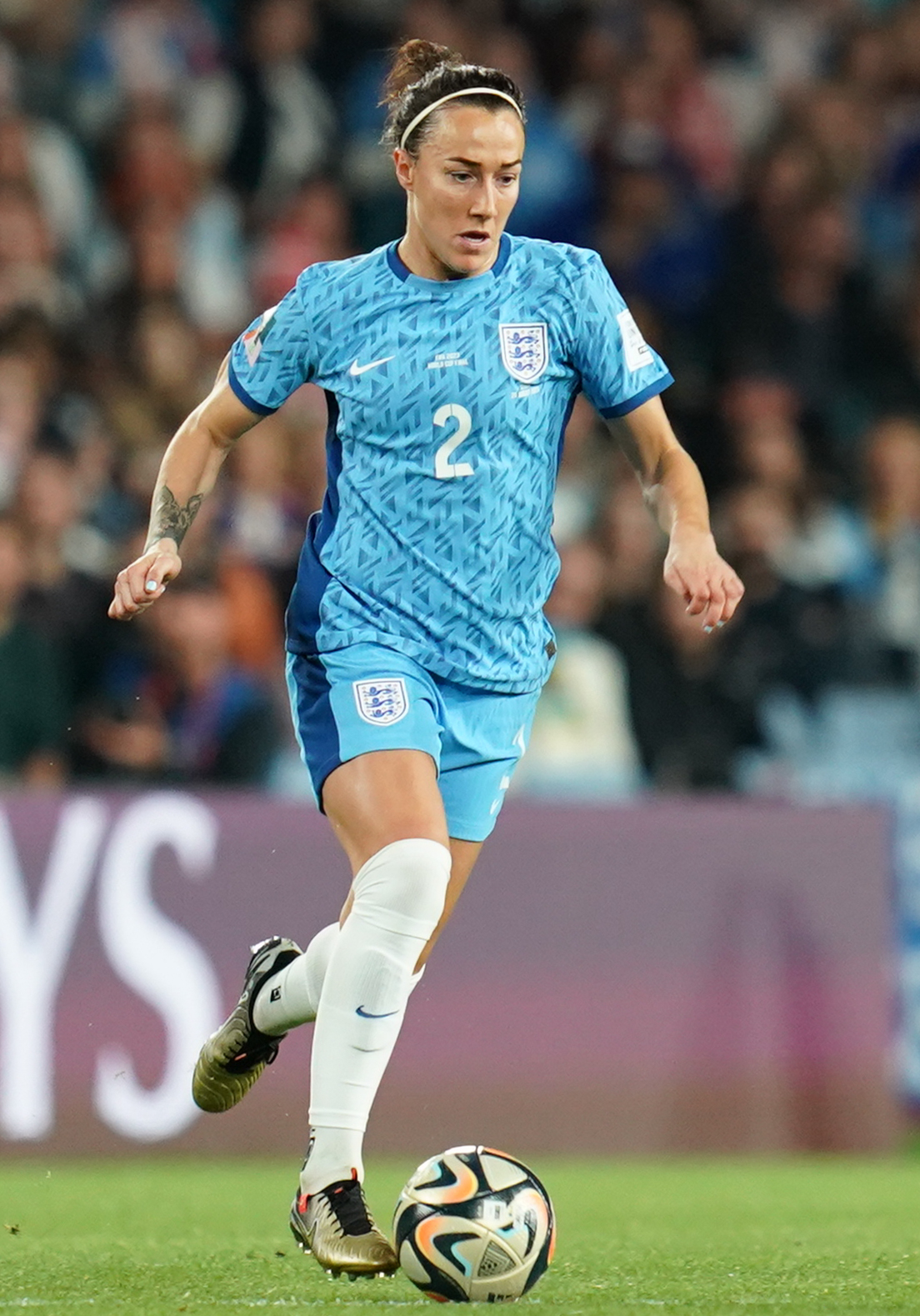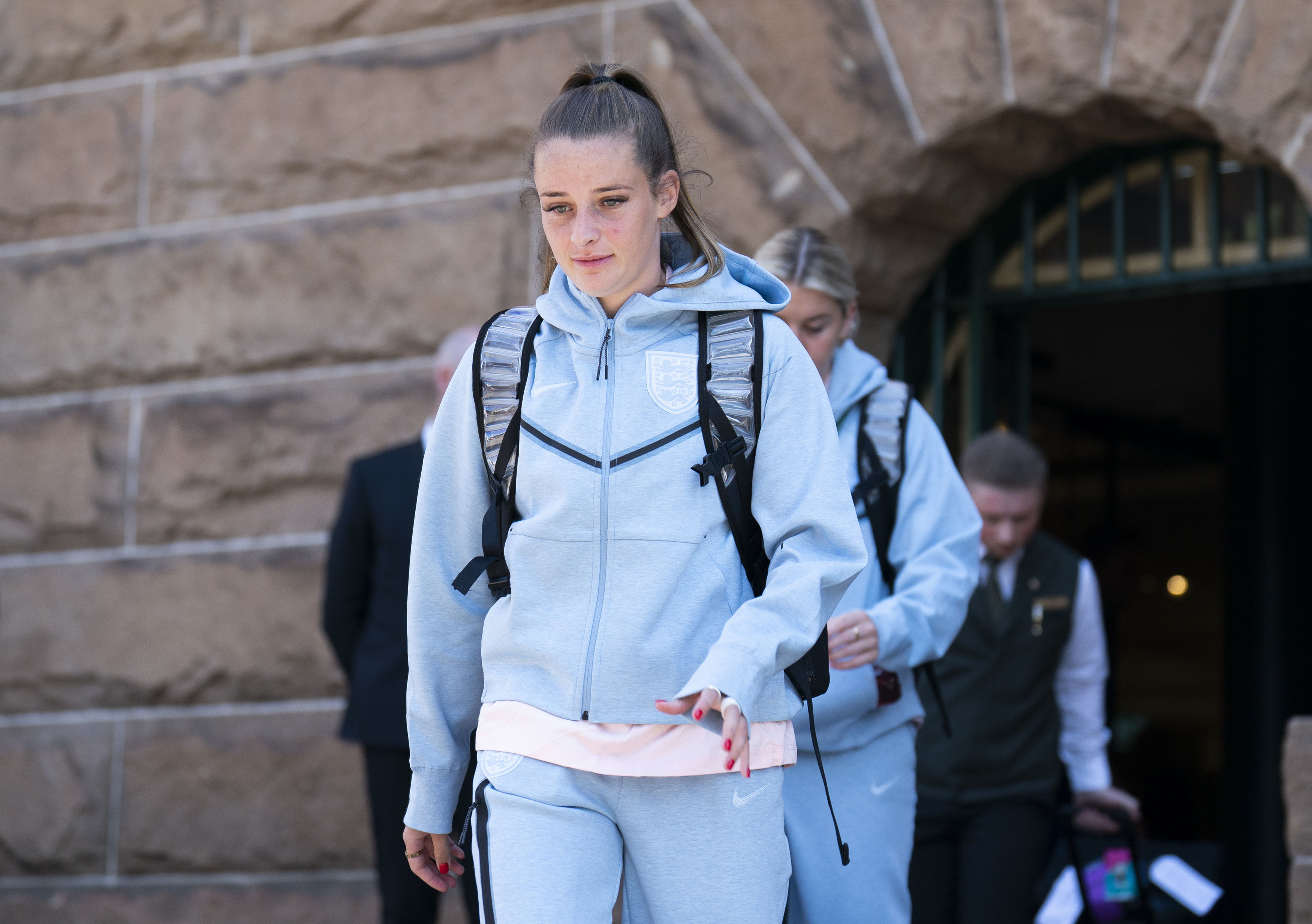
’s wait for a trophy goes on. As the team were applauded through Sydney airport, heading home on a plane on Monday afternoon, the mood felt downcast.
There were tears on the pitch, because of course there were. This was not the way the story was supposed to end.
English football has a fairly strained relationship with winning but the Lionesses had shown that could change in July last year. It felt like this was a side who looked to always find a way, who would not take no for an answer.
But up against , they faltered and in truth, they did little to show that they deserved to win. Many of the same problems that they had had throughout the tournament and in the build up reared their heads. A lack of connection going forward limited their ability to create chances, whilst they struggled to deal with pace in the channels.
’s decisive half-time changes would have been heralded as a masterstroke if they had come off, but despite the introduction of and Chloe Kelly, Spain’s grip on the game only tightened.
In the end, despite 13 minutes of added time, England never really looked like scoring. Given the fact Spain had conceded in every one of their knockout games, that was a frustrating end to a tournament where England had regularly been clinical in front of goal.
For now the wait goes on for a World Cup trophy.

What comes next for this England team?
Whilst the sadness of losing the final obviously hangs over everything right now, this still represents England’s best ever finish at a Women’s World Cup.
To reach consecutive finals at a European Championship and World Cup is something very few teams manage to do, let alone teams who have been forced to replace four starters in 12 months. This England team was weakened repeatedly and found a way to get back up.
That has allowed new players to come through and gain a wealth of experience from playing at an international tournament. Alessia Russo and Ella Toone had never started matches at an international tournament whilst Jess Carter and Lauren James had hardly featured.

All four of those players will be hoping to be in the next World Cup squad, if not the next two. There will be learning opportunities – about pressure, about patience and about what it takes to reach the latter stages of the tournament. For some players though, this might represent their last World Cup.
Lucy Bronze is 32 in October whilst Millie Bright turned 30 the day after the final. Both have been stalwarts within the squad and Bright stepped up with aplomb as captain, despite heading to the tournament following a tough injury lay-off.
Wiegman has had the opportunity to pick and choose her squad since she arrived, most notably leaving Steph Houghton out of this World Cup squad after she missed the Euros through injury.
But how she chooses to move on players who in the past she has been extremely loyal too will be a big test of her managerial ability. Bright and Bronze have started every international tournament match under Wiegman, but will they do so at Euro 2025?
Women’s football does not just stop
The end of any international tournament always feels like it leaves a bit of a void. In the women’s game, there is the extra concern the attention placed on teams during international breaks won’t be passed on outside of those moments.
We have already seen how the Euros encouraged bigger and better attendances, but it does not have to stop there.
The Lionesses will be playing for their club teams every week when the Women’s Super League returns in October. Tickets are available at much lower prices than their men’s equivalents and offer the opportunity to see World Cup finalists up close.
If you have grown attached to England or a player over this past month, there are more opportunities to watch them. Get out to your local team and begin rooting for them. Women’s football is here to stay, it’s only getting bigger, and it’s on your doorstep.
Go out and find more of it and help England be back to win more in the future.




















